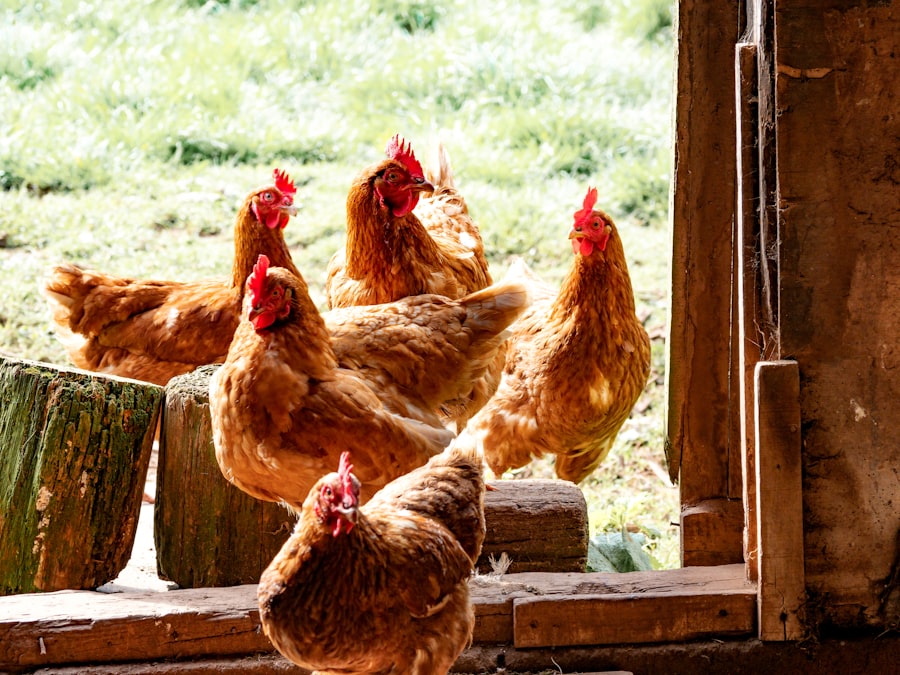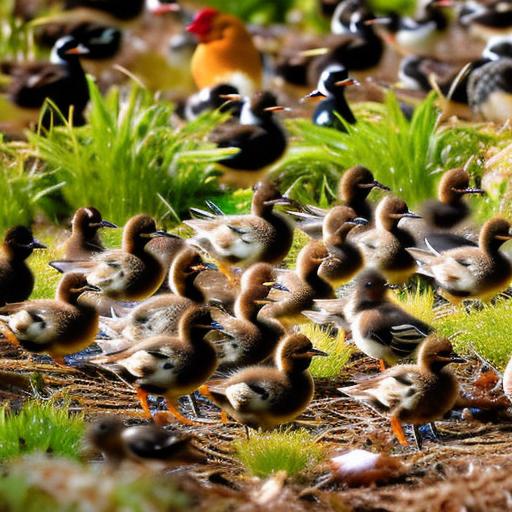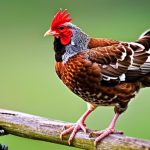Keeping ducks and chickens together can be a rewarding and enjoyable experience. Not only do these feathered friends provide fresh eggs and pest control, but they also offer companionship and entertainment. However, before embarking on this endeavor, it is important to understand the differences between ducks and chickens and how to properly care for them. In this article, we will explore the benefits of keeping ducks and chickens together, discuss the requirements for a suitable coop, and provide tips on feeding, nesting, and managing the flock.
Key Takeaways
- Ducks and chickens have different needs and behaviors, but can be kept together with proper care.
- Keeping ducks and chickens together can provide benefits such as pest control and increased egg production.
- When choosing a coop for ducks and chickens, consider size and nesting requirements for both species.
- Feeding and watering ducks and chickens together requires separate containers and appropriate food.
- Proper management and health considerations are important for keeping a mixed flock of ducks and chickens.
Understanding the Differences Between Ducks and Chickens
Ducks and chickens may both be poultry birds, but they have distinct physical and behavioral differences. Chickens are land-dwelling birds with wings that are not well-suited for flying long distances. They have a compact body shape with feathers that are typically brown or white. Chickens are known for scratching the ground with their feet to find food.
On the other hand, ducks are waterfowl with webbed feet that allow them to swim and dive in water. They have a more elongated body shape and feathers that come in various colors and patterns. Ducks also have an oil gland near their tail that helps waterproof their feathers.
In terms of behavior, chickens are more social and tend to stay close to their coop or run. They are known for establishing a pecking order within their flock. Ducks, on the other hand, are more independent and enjoy exploring their surroundings. They are also known for their quacking sounds.
Understanding these differences is crucial when keeping ducks and chickens together. It helps ensure that their needs are met and that they can coexist harmoniously.
Benefits of Keeping Ducks and Chickens Together
There are several benefits to keeping ducks and chickens together. One of the main advantages is pest control. Ducks love to eat insects, slugs, snails, and other pests that can be harmful to your garden or crops. They are natural foragers and can help keep your yard free from unwanted critters.
Another benefit is companionship. Ducks and chickens can form strong bonds and provide each other with social interaction. They can also learn from each other’s behaviors and habits. This can be particularly beneficial for young birds who are learning how to navigate their environment.
Personal experiences can further highlight the benefits of keeping ducks and chickens together. For example, many people have reported that their ducks and chickens have become inseparable friends, often seen foraging together or taking dust baths side by side. These heartwarming stories demonstrate the positive impact of keeping these two species together.
Choosing the Right Chicken Coop for Ducks and Chickens
When it comes to choosing a coop for ducks and chickens, there are a few factors to consider. Firstly, the coop should provide adequate shelter and protection from predators. Ducks are more vulnerable to predators than chickens due to their inability to fly away quickly. Therefore, the coop should have secure fencing and a predator-proof design.
Secondly, the coop should have enough space to accommodate both ducks and chickens comfortably. Ducks require more space than chickens due to their larger size and need for swimming water. The coop should have enough room for both species to move around freely without feeling cramped.
There are different types of chicken coops available, such as traditional wooden coops, mobile coops, and converted sheds or barns. The type of coop you choose will depend on your specific needs and preferences. However, it is important to ensure that the coop is suitable for both ducks and chickens in terms of size, ventilation, and accessibility.
Size Requirements for a Coop for Ducks and Chickens
The size requirements for a coop that will house both ducks and chickens depend on the number of birds you plan to keep. As a general guideline, each chicken should have at least 4 square feet of indoor space and 10 square feet of outdoor space. Ducks, on the other hand, require at least 6-8 square feet of indoor space and 15-20 square feet of outdoor space per bird.
To calculate the appropriate size for your coop, add up the total square footage needed for all the birds and ensure that the coop meets these requirements. It is always better to err on the side of caution and provide more space rather than less. This will help prevent overcrowding and reduce the risk of stress or aggression among the birds.
Feeding and Watering Ducks and Chickens Together

Feeding ducks and chickens together can be a bit challenging, as they have different dietary needs. Chickens are omnivores and require a balanced diet that includes grains, vegetables, fruits, and protein sources such as insects or mealworms. Ducks, on the other hand, are primarily herbivores and require a diet that is high in greens and aquatic plants.
To ensure that both species receive the appropriate nutrition, it is best to provide separate feeding stations. This can be done by using different types of feeders or by placing food in different areas of the coop or run. This will prevent one species from dominating the food source and ensure that each bird gets its fair share.
Similarly, providing separate water sources is important to prevent contamination and ensure that both ducks and chickens have access to clean water. Ducks require deeper water for swimming, while chickens only need shallow water for drinking. By providing separate water containers or using a larger container with a ramp for ducks to access deeper water, you can meet the needs of both species.
Nesting Requirements for Ducks and Chickens
Both ducks and chickens require suitable nesting areas to lay their eggs. Chickens typically prefer nesting boxes that are dark, quiet, and secluded. These boxes should be filled with clean bedding material such as straw or wood shavings. The nesting boxes should be elevated off the ground to prevent predators from accessing the eggs.
Ducks, on the other hand, prefer to nest on the ground or in low, open areas. They do not require nesting boxes but will appreciate a clean and comfortable area with straw or grass. Ducks may also choose to lay their eggs in hidden spots, so it is important to provide them with suitable options.
To accommodate both ducks and chickens, you can create nesting boxes that have a combination of dark, secluded areas for chickens and open areas for ducks. This will allow each species to choose their preferred nesting spot and ensure that their eggs are safe and secure.
Managing the Flock: Caring for Ducks and Chickens Together
Caring for a mixed flock of ducks and chickens requires some management strategies to ensure their health and well-being. Firstly, it is important to monitor the flock regularly for any signs of illness or injury. Ducks are more susceptible to certain diseases such as botulism or duck viral enteritis, while chickens may be prone to respiratory infections or parasites. By observing the birds closely and seeking veterinary care when necessary, you can prevent and treat any health issues that may arise.
Secondly, it is important to provide adequate enrichment for both ducks and chickens. Ducks enjoy swimming and foraging in water, so providing a shallow pool or pond in the run can greatly enhance their well-being. Chickens, on the other hand, enjoy scratching the ground and dust bathing. Providing areas with loose soil or sand can satisfy their natural behaviors.
Lastly, it is important to ensure that the coop and run are kept clean and free from waste buildup. Regularly cleaning out bedding material, removing droppings, and providing fresh water will help prevent the spread of disease and maintain a healthy environment for both ducks and chickens.
Health Considerations for Ducks and Chickens
Keeping ducks and chickens together requires vigilance when it comes to their health. Ducks and chickens can be susceptible to various health issues, including respiratory infections, parasites, and nutritional deficiencies. It is important to provide a balanced diet, clean living conditions, and regular veterinary care to prevent these issues.
To prevent respiratory infections, ensure that the coop is well-ventilated and free from drafts. Regularly clean out bedding material and provide fresh air circulation. Additionally, it is important to quarantine any new birds before introducing them to the flock to prevent the spread of diseases.
Parasites such as mites or lice can affect both ducks and chickens. Regularly inspecting the birds for signs of infestation and treating them with appropriate medications or natural remedies can help keep these pests at bay.
Nutritional deficiencies can occur if the birds are not receiving a balanced diet. Ducks require a diet that is high in greens and aquatic plants, while chickens require a mix of grains, vegetables, fruits, and protein sources. Providing a varied diet and supplementing with appropriate vitamins or minerals can help prevent nutritional deficiencies.
Can You Keep Baby Ducks and Chickens Together in a Chicken Coop?
In conclusion, keeping ducks and chickens together can be a rewarding experience if done properly. Understanding the differences between these two species and providing suitable housing, feeding, and care is crucial for their well-being.
Yes, you can keep baby ducks and chickens together in a chicken coop as long as you provide adequate space, shelter, and separate feeding and watering stations. By following the guidelines outlined in this article, you can create a harmonious environment where ducks and chickens can coexist happily.
Remember to monitor the flock regularly for any signs of illness or injury and seek veterinary care when necessary. With proper care and attention, your mixed flock of ducks and chickens can thrive and provide you with fresh eggs, pest control, companionship, and entertainment for years to come.
If you’re considering keeping baby ducks and chickens together, it’s important to understand the dynamics and requirements of both species. A helpful article on Poultry Wizard explores the topic in detail, providing insights on how to create a suitable environment for them. From tips on designing a garden chicken coop (source) to understanding the ideal floor for a chicken coop (source), and even determining the right size for a chicken coop door (source), this article covers all the essential aspects to ensure the well-being and compatibility of your feathered friends.
FAQs
Can I keep baby ducks and chickens together?
Yes, it is possible to keep baby ducks and chickens together. However, there are some important considerations to keep in mind.
What are the differences between baby ducks and chickens?
Baby ducks and chickens have different needs and behaviors. Ducks require more water than chickens, as they need to be able to submerge their heads to clean their nostrils. Ducks also have a different diet than chickens, as they require more niacin and less protein.
What are the benefits of keeping baby ducks and chickens together?
Keeping baby ducks and chickens together can provide companionship and reduce loneliness for both species. It can also be more convenient for owners who want to raise multiple types of poultry.
What are the risks of keeping baby ducks and chickens together?
The main risk of keeping baby ducks and chickens together is the potential for disease transmission. Ducks and chickens can carry different diseases, and if one species becomes infected, it can easily spread to the other. Additionally, ducks may be more susceptible to respiratory infections if they are kept in close proximity to chickens.
How can I minimize the risks of keeping baby ducks and chickens together?
To minimize the risks of disease transmission, it is important to keep the living area clean and separate food and water sources for each species. It is also recommended to quarantine new birds before introducing them to the existing flock. Additionally, providing ample space and ventilation can help reduce the risk of respiratory infections.
Meet Walter, the feathered-friend fanatic of Florida! Nestled in the sunshine state, Walter struts through life with his feathered companions, clucking his way to happiness. With a coop that’s fancier than a five-star hotel, he’s the Don Juan of the chicken world. When he’s not teaching his hens to do the cha-cha, you’ll find him in a heated debate with his prized rooster, Sir Clucks-a-Lot. Walter’s poultry passion is no yolk; he’s the sunny-side-up guy you never knew you needed in your flock of friends!







